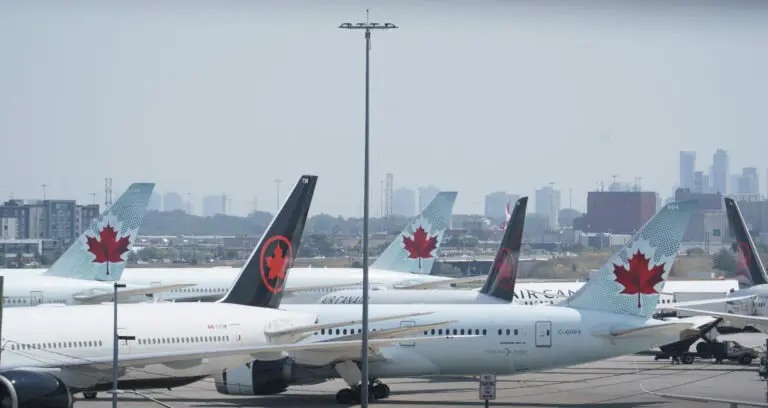Flight Chaos Eases—But Normalcy Still Days Away
Air Canada announced it will begin resuming its flight operations Sunday evening following an abrupt end to a major strike by more than 10,000 flight attendants. The move comes after a rare and forceful intervention by the Canada Industrial Relations Board (CIRB), which legally compelled both the airline and its striking workforce to return to operations.
While planes may be taking off once more, the country’s largest carrier warns travelers that normal operations remain several days out. Passengers should still expect delays and rolling cancellations over the next week as the airline works to recalibrate its schedule and reassign crews.
Binding Arbitration Mandated, Workers Ordered Back
The strike, initiated Saturday morning over pay grievances and demands for compensation for unpaid duties, brought the airline’s summer operations to a near-standstill. Within hours, federal authorities invoked emergency labor provisions, citing national interest and the scale of disruption, and ordered both sides into binding arbitration.
The CIRB’s directive required that all flight attendants return to duty by 2:00 PM EDT on Sunday, marking an aggressive timeline to reinstate service across domestic and international routes.
Union Outraged by Legal Move and Alleged Conflicts
The Canadian Union of Public Employees (CUPE), which represents the airline’s cabin crew, condemned the government’s actions, accusing it of undermining collective bargaining rights. The union argued that the arbitration order rewarded Air Canada for stonewalling negotiations.
CUPE also raised serious concerns about the neutrality of the CIRB’s chairperson, citing a past affiliation with Air Canada’s legal team. The union described the decision as “a dangerous precedent” that could erode worker leverage in future labor disputes.
Economic Pressure Cited, Industry Leaders Wary
Industry leaders had warned of broader consequences if the strike persisted. With Air Canada handling over 130,000 passengers daily and linking 180 cities across the globe, even a brief shutdown sent ripple effects through the travel and logistics sectors.
The Business Council of Canada, in an earlier statement, emphasized the risk to the country’s economic stability, particularly in light of rising trade tensions and tariff impacts from abroad. The council described the airline as a “critical artery” of commerce.
Wages Still a Flashpoint
At the heart of the dispute lies compensation. Air Canada claimed its offer would bring senior flight attendant earnings to an average of CAD $87,000 by 2027. CUPE disputes the figure, calling it misleading and insufficient in the face of rising inflation and industry benchmarks.
No timeline has yet been established for the binding arbitration proceedings. Meanwhile, passengers and crew alike are left navigating the fallout of a conflict that has, for now, been legally silenced—but not resolved.






